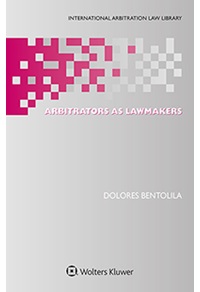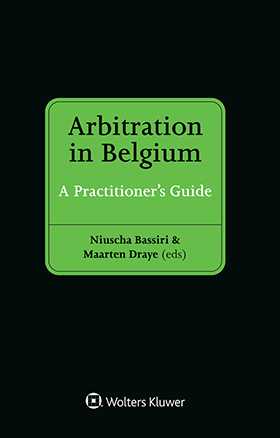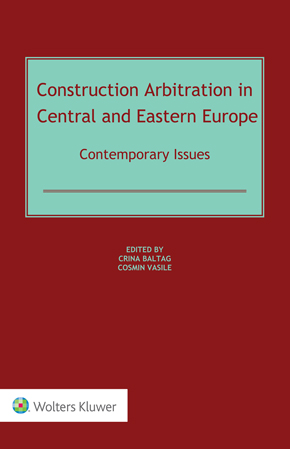On Thursday, 13 January 2011, France revealed its long-awaited new arbitration law. The décret n° 2011-48 portant réforme de l’arbitrage, was published in France’s Official Journal, alongside a report commenting on the reform. The new law can be found here, as well as the accompanying commentary here.
The reform concerns both domestic and international arbitration and the new provisions will comprise Articles 1442 to 1527 of the French Code of Civil Procedure. The new law becomes effective and applicable as of 1 May 2011, except for a number of specifically enumerated provisions which apply only if the arbitration agreement was entered into, the arbitral tribunal constituted, or the award rendered, after that date.
The French arbitration community has long lobbied for this updated of the law, the first overall reform of French arbitration legislation since the 1980s. The reform keeps with the long-standing tradition of innovative and arbitration-friendly arbitration law in France, which has contributed to establishing Paris as one of the world’s most popular seats of arbitration.
The aim of the new law is to sustain Paris’ leading role in international arbitration. The accompanying official report states that “after thirty years, the reform appeared necessary to consolidate case law [in the area], as well as to complement the existing text and conserve its efficacy.” The report also specifically draws attention to the fact that the new law has “integrated some provisions inspired by foreign laws which have proven useful.”
By codifying well-established French case law, the reform also significantly enhances the accessibility of French arbitration law for foreign users and observers. For instance, Article 1447 codifies the fundamental principle of the autonomy of the arbitration agreement, according to which the arbitration clause remains unaffected even if the underlying contract is found void. The provision states that “[t]he arbitration agreement is independent from the contract it relates to.”
Another example of codifying existing case law can be found in Article 1466. According to this provision, which is clearly inspired by previous French case law as well as the common law concept of estoppel, a party who – in knowledge of the facts and without any legitimate excuse – fails to invoke an irregularity of the arbitral process in due course, is prevented from doing so at a later stage.
The new law also contains some important innovations which will surely be subject of abundant commentary on this blog and elsewhere. For instance, Article 1522 contains a significant and substantial change concerning the parties’ ability to waive their right to seek annulment of an award in front of the national courts at the seat of the arbitration. Article 1522 provides that “the parties may, by specific agreement, waive at any time their right to challenge the award [by way of annulment].” This new provision will become effective for arbitration agreements entered into after 1 May 2011.
According to the report accompanying the new law, the parties’ waiver under Article 1522 does not affect, however, their right to appeal any decision to enforce the award in France. The report also explains that Article 1522 was inspired by “existing foreign law.” Indeed, a few jurisdictions with pro-arbitration statues permit the parties to waive or exclude judicial review of the award by way of annulment proceedings. For instance, Swiss and Belgian law permit such waivers as long as the parties are foreign, i.e., have no connection to Switzerland/Belgium respectively. Contrary to Belgian or Swiss law, however, the new French provision grants the right to exclude judicial review in annulment proceedings not only to foreign but also to French parties.
Another notable innovation is contained in Article 1526, which provides that a challenge of the award does not automatically result in suspension of enforcement proceedings. Rather, according to Article 1526 para. 2, a suspension has to be specifically requested and is granted only if the enforcement would be highly detrimental to the rights of the party requesting the suspension. The report accompanying the new law notes that the aim of this provision is to discourage bad faith annulment proceedings which seek to delay the enforcement of fully valid and legitimate awards. Article 1526 will apply to awards rendered after 1 May 2011.
Without any attempt to draw an exhaustive list, further clarifications or changes in the new law include the fact that (i) international arbitration agreements – contrary to the solution contained in the New York Convention – do not have to meet any particular form requirements (Article 1507); and (ii) the original of the award is no longer required with the petition for seeking exequatur; rather, it is now sufficient to present a copy which fulfils “the conditions required to establish its authenticity” (Article 1515).
Finally, some changes which are not supposed to introduce any substantive modifications according to the official accompanying report, will nonetheless not go unnoticed. For instance, one of the grounds for challenging an award has been significantly re-worded. While Articles 1504/1502-2 previously referred to the fact that the tribunal “has rendered the award without an arbitration agreement or based on an arbitration agreement that was void or expired,” Article 1520-2 instead now allows setting aside of the award if the tribunal “has mistakenly declared itself to have or not to have jurisdiction.”
Overall, the new law has been well-received so far by the arbitration community. The very first reactions described the reform as innovative and trend-setting. Interestingly, the French newspaper Les Echos has quoted the French Justice Minister, Michel Mercier, as saying that the new law is also aimed at keeping the ICC headquarters in Paris. Mr. Mercier said that in enacting the new law, “[t]he government had paid particular attention to the situation of the international chamber of commerce.” He concluded that Paris was the premier place in the world for arbitration and that the new law would ensure that it continued to thrive.
By Maxi Scherer and Gary Born


